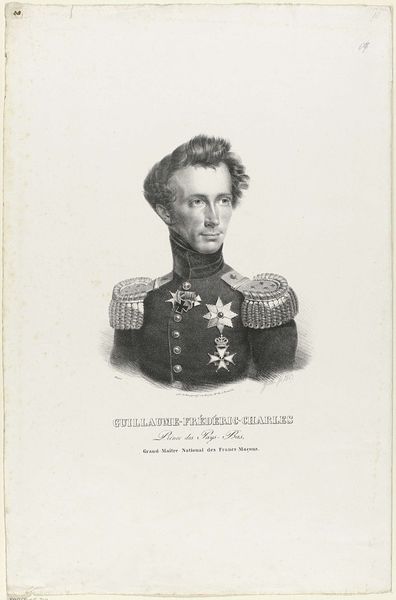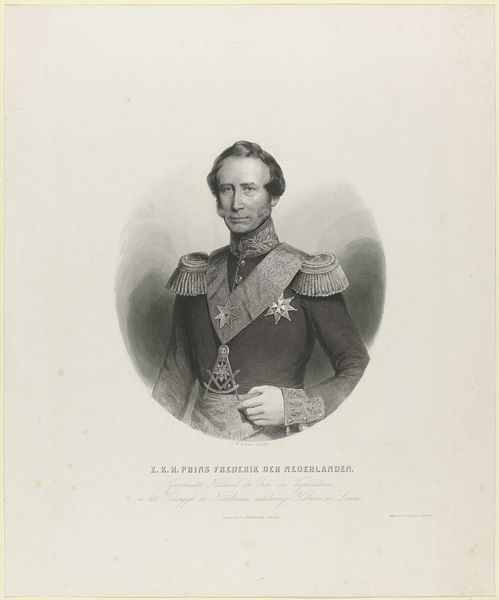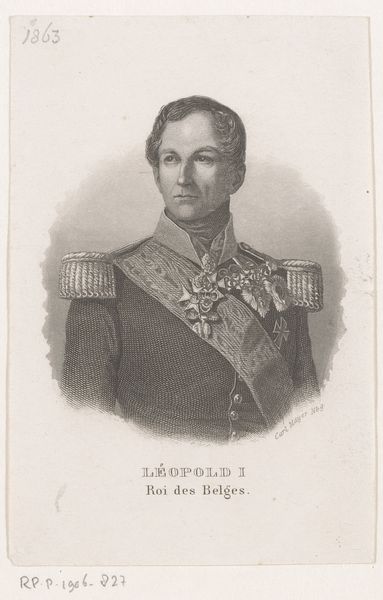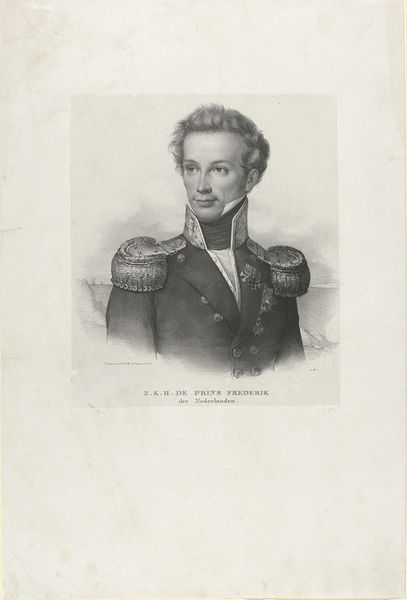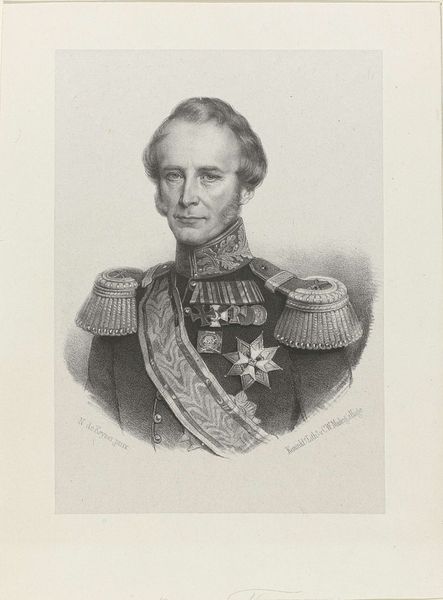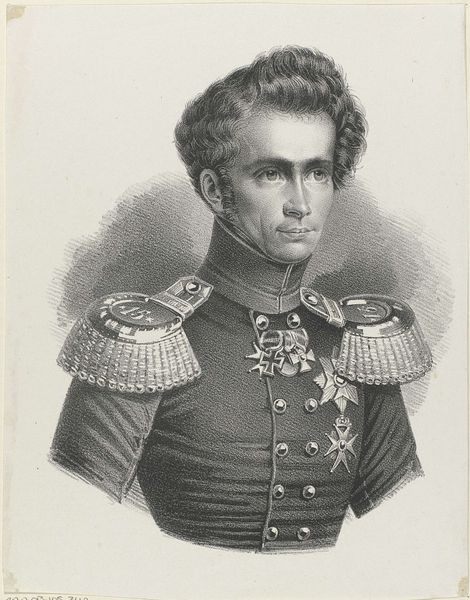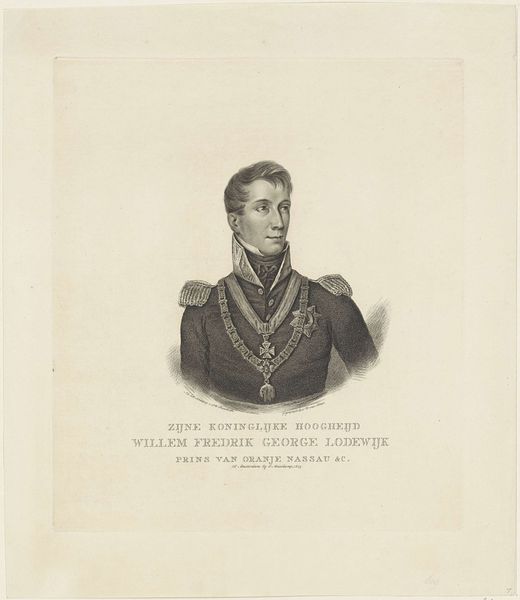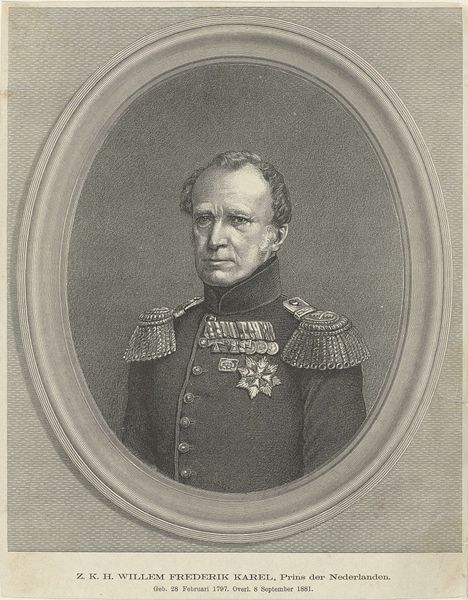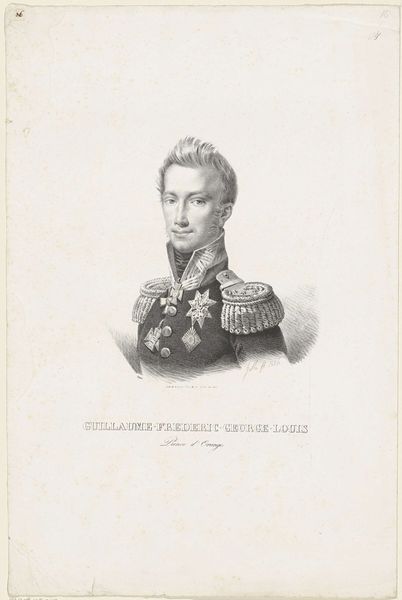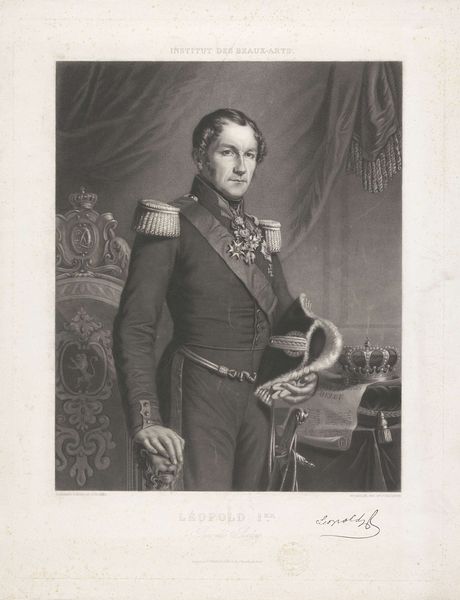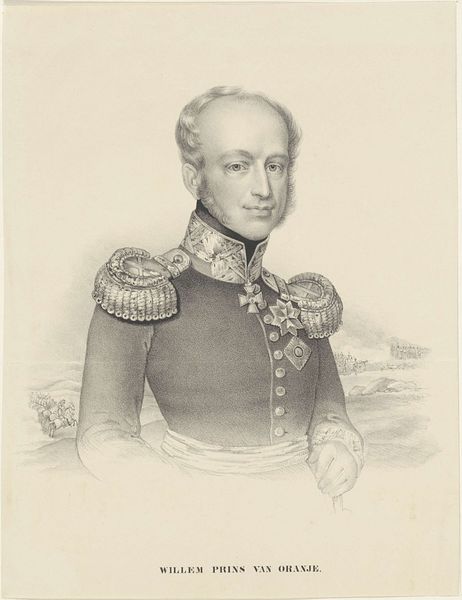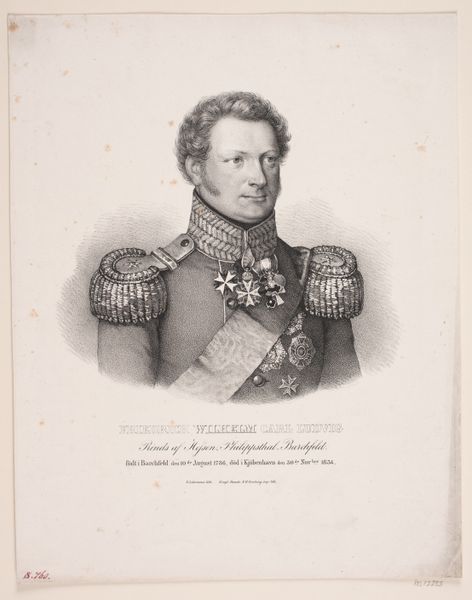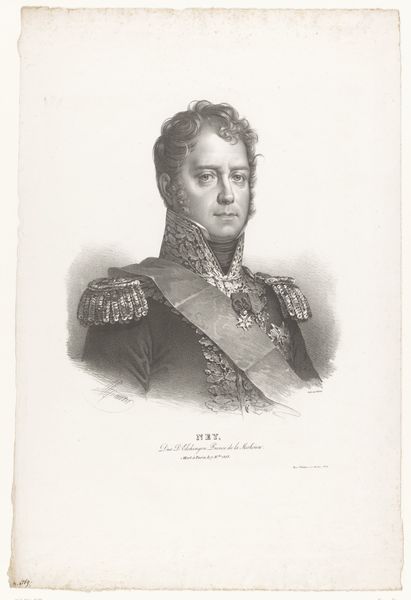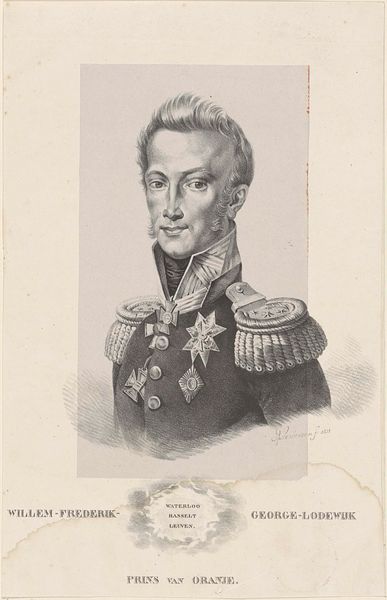
Portret van Frederik, prins der Nederlanden 1816 - 1879
0:00
0:00
henricusleonardusvandenhouten
Rijksmuseum
drawing, pencil, graphite
#
portrait
#
pencil drawn
#
drawing
#
caricature
#
portrait reference
#
pencil drawing
#
romanticism
#
pencil
#
graphite
#
portrait drawing
#
realism
Dimensions: height 393 mm, width 279 mm
Copyright: Rijks Museum: Open Domain
Curator: The artwork before us is a portrait of Frederik, Prince of the Netherlands, crafted with pencil between 1816 and 1879 by Henricus Leonardus van den Houten. Editor: It has a delicate quality, doesn't it? The tonal gradations are very subtle, particularly around the face. It creates a pensive mood, a kind of reserved nobility. Curator: That reserved quality speaks volumes, given the Prince’s role. Born into power, his life was inherently political. These images, especially during that period, served to reinforce social hierarchies and legitimize authority. Editor: Absolutely. And it’s achieved partly through form. Notice how the tight hatching defines the contours of his face, leading our eye up to the carefully rendered details of the uniform. There's a meticulous balance between the sharpness of the lines in the military garb and the softness of the face. Curator: I think the rigidity in his posture, contrasted with the slight almost hesitant look in his eyes, adds layers. It invites us to consider the constraints placed on individuals, especially within systems of inherited power and privilege, doesn’t it? This piece offers commentary, intended or not, on the person beneath the uniform. Editor: An intriguing point. The texture achieved with graphite creates a surprisingly three-dimensional effect for such a seemingly simple medium. It’s not just about capturing likeness, but texture, the very *feel* of status and authority. Curator: For me, it underscores the complex relationship between representation and reality. It asks, “Whose stories get told and how?” “What performative acts of self are concealed beneath formal appearances?” The portrait reminds us that historical figures weren't monolithic. They operated within socio-political landscapes. Editor: Indeed. Looking closely, you see Van den Houten expertly manipulates light and shadow to emphasize certain features, minimizing others, carefully constructing a visual narrative that reinforces a particular ideal of leadership, of royal bearing. Curator: Ultimately, what began as a straightforward portrait evolves into a window onto a network of intersecting ideas regarding representation, power, and identity in 19th century Netherlands. Editor: I agree; the piece reminds us how close analysis of structure allows for expanded understanding.
Comments
No comments
Be the first to comment and join the conversation on the ultimate creative platform.
